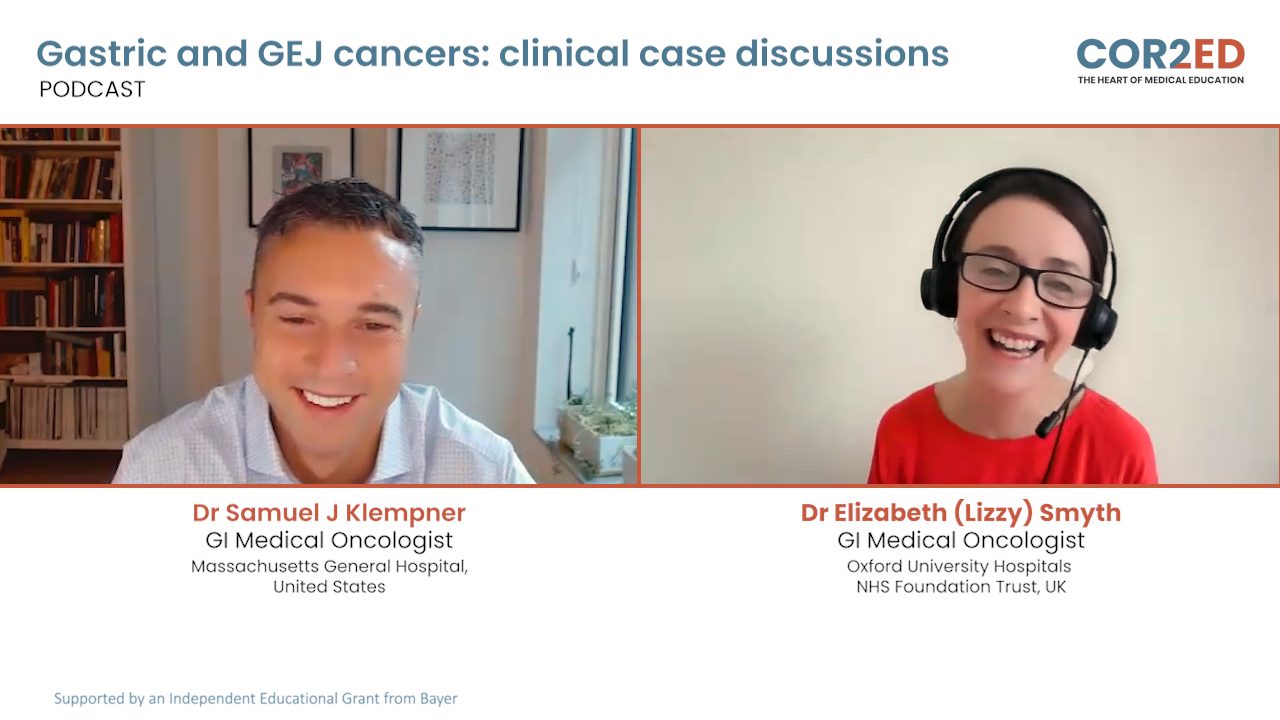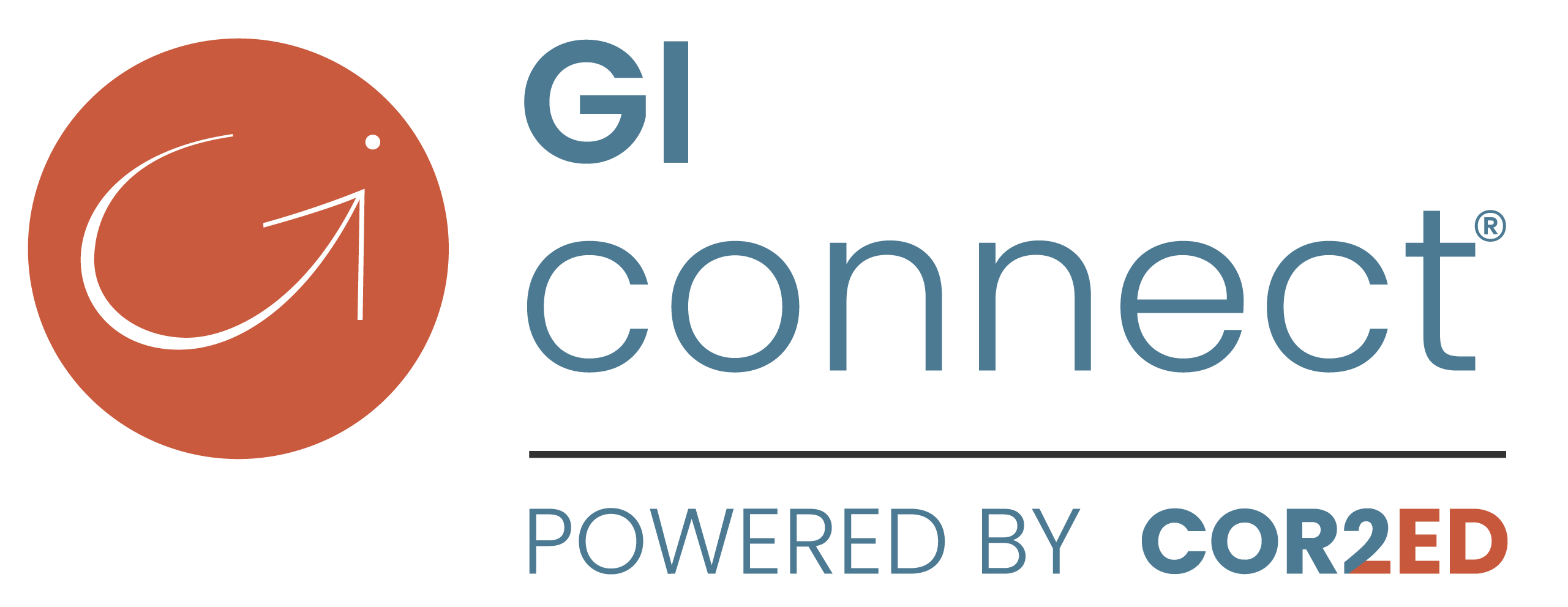In these two podcast episodes, GI oncologists discuss the clinical cases of two patients with gastric and gastroesophageal (GE) cancer.
Episode 1 focuses on a patient with non-metastatic cancer, while Episode 2 looks at a metastatic case.
Listen to both podcast episodes or watch a video recording of the conversation for an update on:
- Treatment sequences in gastric and gastroesophageal cancer
- Practice-changing data and essential biomarker testing
- Near-future developments in the field
Clinical Takeaways
-
It is crucial to test all localised or locally advanced gastric and GE junction cancers for mismatch repair status. Patients with operable MMR-deficient tumours have intrinsically better prognoses, limited if any benefit from perioperative chemotherapy alone, and are more likely to benefit from neoadjuvant/perioperative immunotherapy. Deficient MMR/MSI-high GE patients should be discussed in multi-disciplinary conference given the impact on management decisions.
-
Patients with operable GE junction cancers are candidates for perioperative FLOT and/or neoadjuvant chemoradiation approaches. These approaches have not been compared directly, however, perioperative chemotherapy may be more appropriate for patients with clinically involved lymph nodes who are at high risk of systemic relapse. Perioperative immunotherapy is not standard although phase III trials are expected soon.
-
In advanced gastric cancer, biomarker testing at diagnosis is required to guide treatment decisions. The most critical biomarkers include MMR, HER2, and PD-L1.
-
Fit patients with operable GE junction cancer and lymph node involvement often receive standard FLOT chemotherapy. Neo-adjuvant immunotherapy is promising in MMR-deficient patients
-
The treatment landscape for gastric cancer is evolving. One notable upcoming treatment is zolbetuximab. Future treatment decisions may involve a careful evaluation of biomarker status, such as CLDN18.2 and PD-L1, to determine the most suitable therapy. In future, sequential treatment strategies involving multiple targeted therapies may offer improved outcomes, and repeat biopsies could be essential to assess for resistance mechanisms and adjust treatment accordingly.









 Downloadable
Downloadable  5 MIN
5 MIN
 Jun 2025
Jun 2025 






